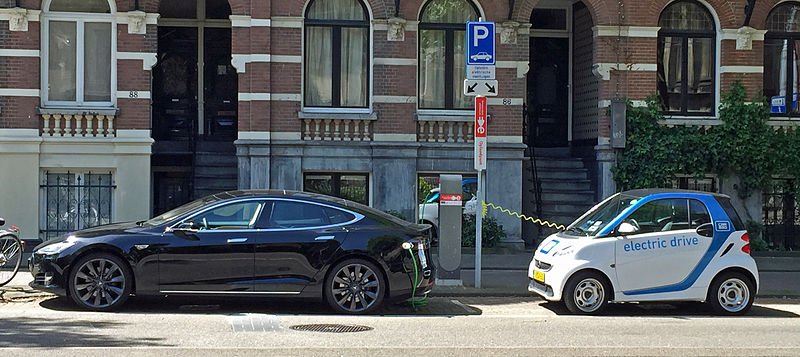EU proposes 2035 effective ban on all non-electric cars

The European Union has proposed what's effectively a ban on the sale of all new petrol and diesel cars – including hybrids – from 2035, as part of a package of measures to dramatically reduce greenhouse gas emissions.
The European Commission, the EU’s executive branch, has proposed a 55% cut in vehicular CO2 emissions from current levels by 2030, rising to 100% by 2035. That would effectively make it impossible to sell non-electric vehicles within the EU’s 27 member states.
The new targets are a substantial increase on the current measures, which currently require a 37.5% reduction in CO2 emissions by 2030. Those goals, which are becoming increasingly tougher, have already forced car manufacturers to dramatically increase their electrified vehicle offerings to avoid heavy EU fines.
Significantly, the proposals include removing the exemption from the emission rules for small volume manufacturers – those who produce between 1000 and 10,000 new cars per year – would be removed under the new proposals.
The new goal brings the EU broadly in line with the UK’s targets. The UK government will ban most new non-zero-emissions cars and vehicles by 2030, although certain plug-in hybrids will be allowed to remain on sale until 2035.
Several major car brands, including Bentley, Ford, Opel, Vauxhall and Volvo, have already outlined plans to switch to entirely electric fleets in Europe by 2030.
The European Commission’s proposals also include legislation to boost the infrastructure required for mass EV uptake “in line with zero-emissions car sales”.
That includes a requirement that, by 2025, member states install public charging points along major roads at internals of no more than 60km (37 miles) for battery EVs and 150km (93 miles) for hydrogen fuel cell EVs.
Adina-Ioana Vălean, the EU’s commissioner for transport, said the measures would “create a market for sustainable alternative fuels and low-carbon technologies, while putting in place the right infrastructure to ensure the broad uptake of zero-emissions vehicles and vessels.
"This package will take us beyond greening mobility and logistics. It's a chance to make the EU a lead market for cutting-edge technologies.”
The proposals by the European Commission need to be approved by the European Parliament before becoming law - and reports suggest they could meet resistance from member states.
Bloomberg has reported that French president Emmanuel Macron wants PHEVs to be allowed to remain on sale for longer. Macron has recently met with executives from car firms including Groupe Renault and Stellantis.
Speaking ahead of the publication of the proposals, German transport minister Andreas Scheuer warned that they could be too hard for the automotive industry to feasibly meet.
The emissions targets are part of a wider series of measures designed to make the EU climate-neutral by 2050, which includes an overall 55% reduction in net CO2 emissions by 2030.
The EU says that target is in line with the objectives of the Paris Agreement to keep global temperature increases below 2deg C.
